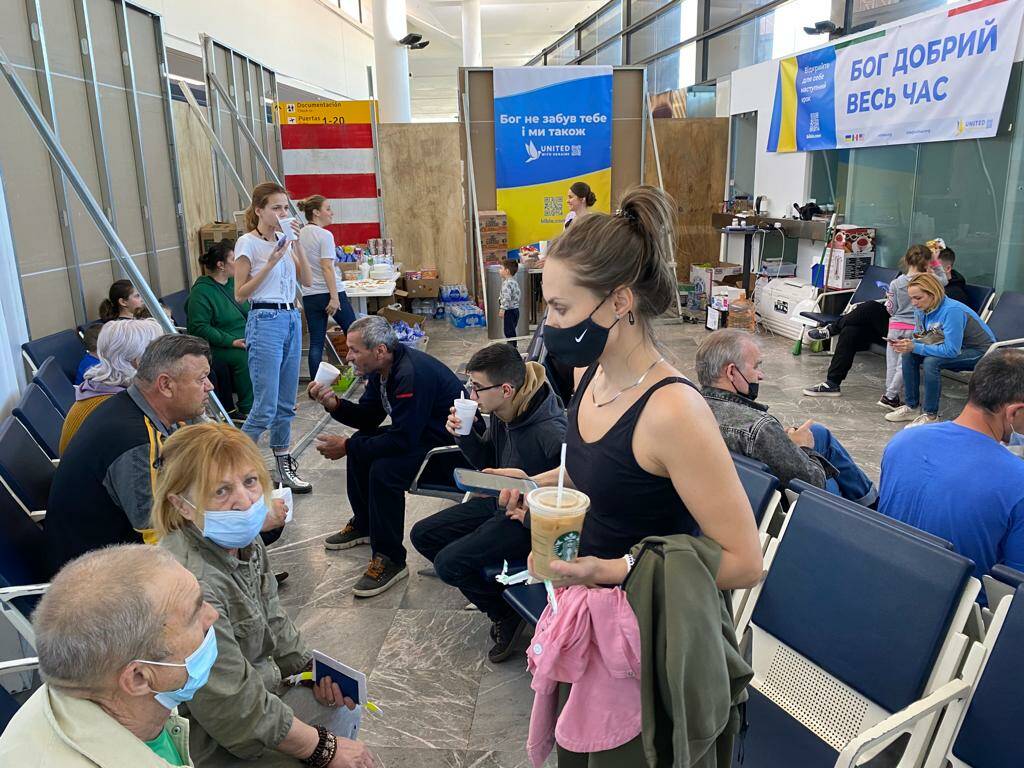When Lidia and Vitaly Chechotkin were eating dinner with their daughter Lena Levin at Piroshky Piroshky at Pike Place Market in Seattle during Orthodox Easter Saturday, no one could have guessed the journey they had been through to be sitting there.
For the Chechotkins, it was two months filled with the trauma of the war in Ukraine. They have endured daily shellings in their hometown, Mykolaiv, experienced food shortages, feared for their lives, were surprised by the kindness of strangers, and survived it all with the bonds of family that stretched halfway around the world and eventually brought them to Bainbridge Island.
After a Russian shell landed outside her parents’ condominium and blew out their windows March 11, Levin pleaded with them to flee the country. But her mother didn’t want to abandon their large garden, and she was afraid the Russians would bomb them in an escape. But, after 50 days of sleepless nights, constant shelling and panic attacks, Lidia called Levin and asked for help.
Levin arranged bus tickets for them to travel to Bucharest, Romania. With one small bag each and their cat, Vasya, the Chechotkins left April 9 and made the 24-hour trip to a refugee center in Bucharest. Volunteers there helped them book free train tickets for a 12-hour trip to Budapest, Hungary, where Levin met them at a refugee center April 13.
There, refugees were assisted with booking free train tickets to neighboring countries and free plane tickets to Spain. Levin helped out by volunteering as a translator and directing refugees to services they needed. Levin and her parents stayed in an apartment in Budapest for a week to make travel arrangements and await the arrival of her partner, Michael Coleman.
After the war broke out, the fighting made it impossible for Lidia to get medical care. Before they could travel more, she needed an oncology appointment to check on radiation treatment received to treat cancer on her face and to get her first COVID-19 vaccination, which she did not receive earlier because of the treatments.
From Budapest, the group traveled to London, Mexico City and to the U.S.-Mexico border.
When they arrived at the Tijuana airport Ukrainian flags were everywhere and Levin said, “People are welcoming us.”
From there they drove to a special border crossing corridor set up for Ukrainian refugees, and they spent two hours at a gym that had been converted to a refugee center staffed by volunteers that provided food, legal assistance, medical care and sleeping areas.
“All types of infrastructure was donation based. It’s pretty amazing. We were pretty shocked at how well it was running,” Levin said.
After enduring more than 50 days of war and 12 days of travel they crossed the border into San Diego.
“It felt like a personal victory,” said Lidia, whose comments were translated by her daughter because she speaks Russian.
After arriving in BI, she added: “The island is crystal clean. It’s so perfect. There is order, peace, quiet, calmness and no crime.”
Lidia is already looking forward to finding a pea patch to grow vegetables because she wants to start contributing. Her husband is a big Jimi Hendrix fan and wants to check out the sites in Seattle.
When they gathered with Levin’s friends on Orthodox Easter Sunday and met other Ukrainians, the Chechotkins said they are starting to enjoy a more peaceful life on the island.
“So our journey now begins,” said Levin, whose parents have one year of humanitarian parole to figure out what their next steps will be.



